The Spectator brings you the latest insight, news and research from the front line. Sign up here to receive this briefing daily by email, and stay abreast of developments both at home and abroad:
News and analysis
- Boris Johnson and Keir Starmer faced off for the first time at PMQs today. James Forsyth has the details on Coffee House.
- Chancellor Rishi Sunak is preparing to roll back the furlough scheme in July, with Matt Hancock admitting yesterday: ‘We’ve got to wean off it.’ Kate Andrews provides analysis below.
- Imperial College London’s Neil Ferguson has stepped down from Sage after it emerged that he had broken lockdown rules to meet with his married lover. The Spectator’s politics team discusses what his resignation means for the UK lockdown on Coffee House Shots.
- It has emerged that 15,000 hospital patients were discharged by the NHS in preparation for the Covid-19 wave, with many sent to care homes.
- At least 20,000 people infected with Covid-19 arrived in the UK before lockdown, with only 273 quarantined.
- Internal government modelling has shown that extending the lockdown for the over-70s could reduce deaths by up to 50%.
- The government is planning to use a ‘traffic light system’ to explain which activities are safe as the lockdown is eased.

‘Serves you right for judging people on their bookcases’
UK moves to ‘wean people off’ furlough scheme
by Kate Andrews
Just weeks ago Chancellor Rishi Sunak claimed that widespread use of the furloughing scheme was proof of its success. But it appears the government has over-achieved. The Treasury’s original prediction was that 10 per cent of businesses would use the salary safety net; the figure has turned out to be closer to 70 per cent. The cost for just one month of the scheme is estimated to be £8 billion, only £3 billion less than the NHS’s monthly budget. ‘We’re not talking about a cliff-edge but we have to get people back to work.’ says Matt Hancock, the Health Secretary. ‘We’ve got to wean off it.’
After telling ITV early this week that the scheme was ‘unsustainable’ for the long-haul, Sunak is changing tack. The Times has now revealed that he will be publishing his plans to roll back the scheme next week, as its price tag has become too big: options include cutting the wage subsidy or lowering the £2,500 monthly income cap.
More than half of adults in the UK are now being financially supported by the government in some way, as 6.3 million people have been furloughed and a surge in new Universal Credit claims has made millions more reliant on taxpayer funds.
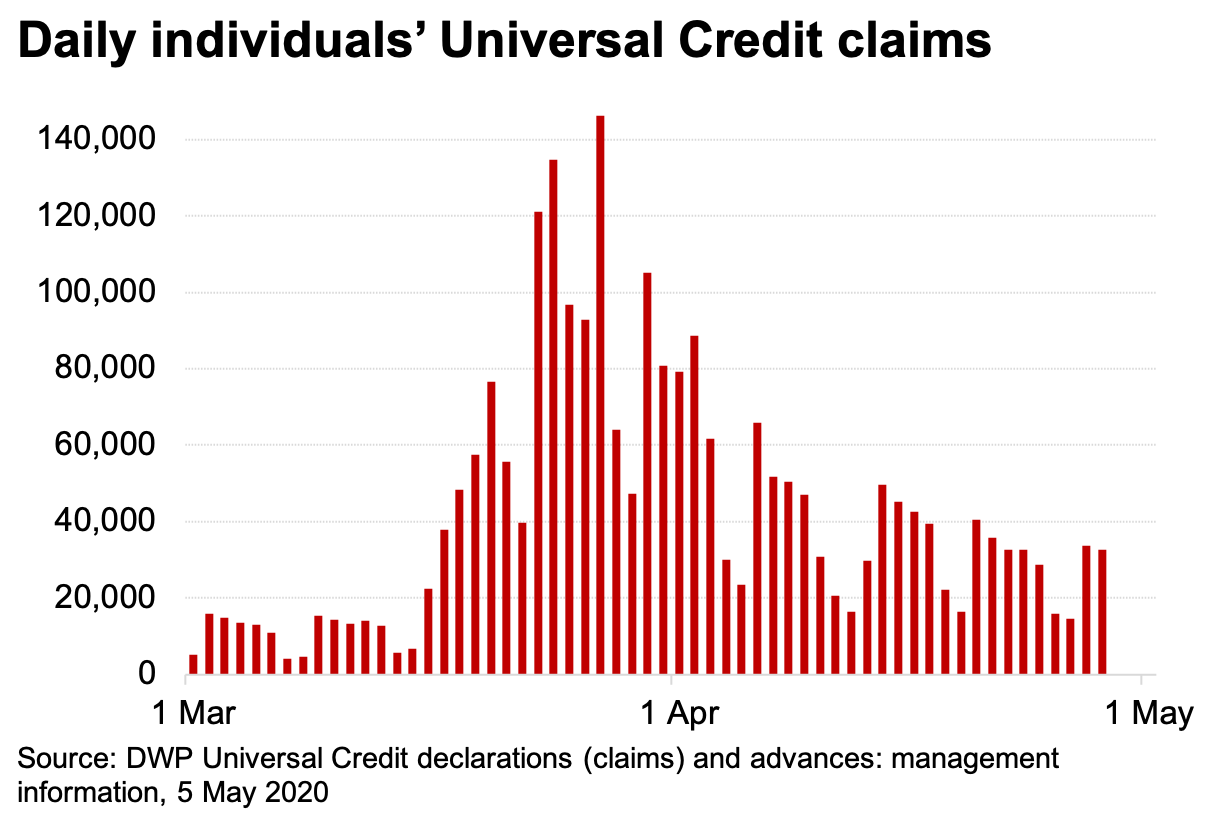
The UK has gone from record low unemployment – 3.9 per cent – to estimates that 10 per cent of the labour force is now out of work. The Treasury won’t just be managing the unexpected demand for unemployment benefits, but the loss of tax revenue as well, with an additional two million people out of work. Even the best case scenario for economic rebound comes with a caveat for employment: scenarios so far suggest that even if the economy comes roaring back, in a V-shaped style recovery, jobs lost to Covid-19 will take longer to return than GDP.
Sunak has been the bearer of good news throughout the crisis so far, announcing the support measures and handing out bandages with big pound signs on them. Unsurprisingly, people have warmed to the idea of free money, with no strings attached and no repayment schedule or means test to qualify. Deciding how to roll it back is going to be politically murky territory, with an inevitable balance of trade-offs for certain sectors and even regions of the UK.
Read more on Spectator Coffee House.
In pictures
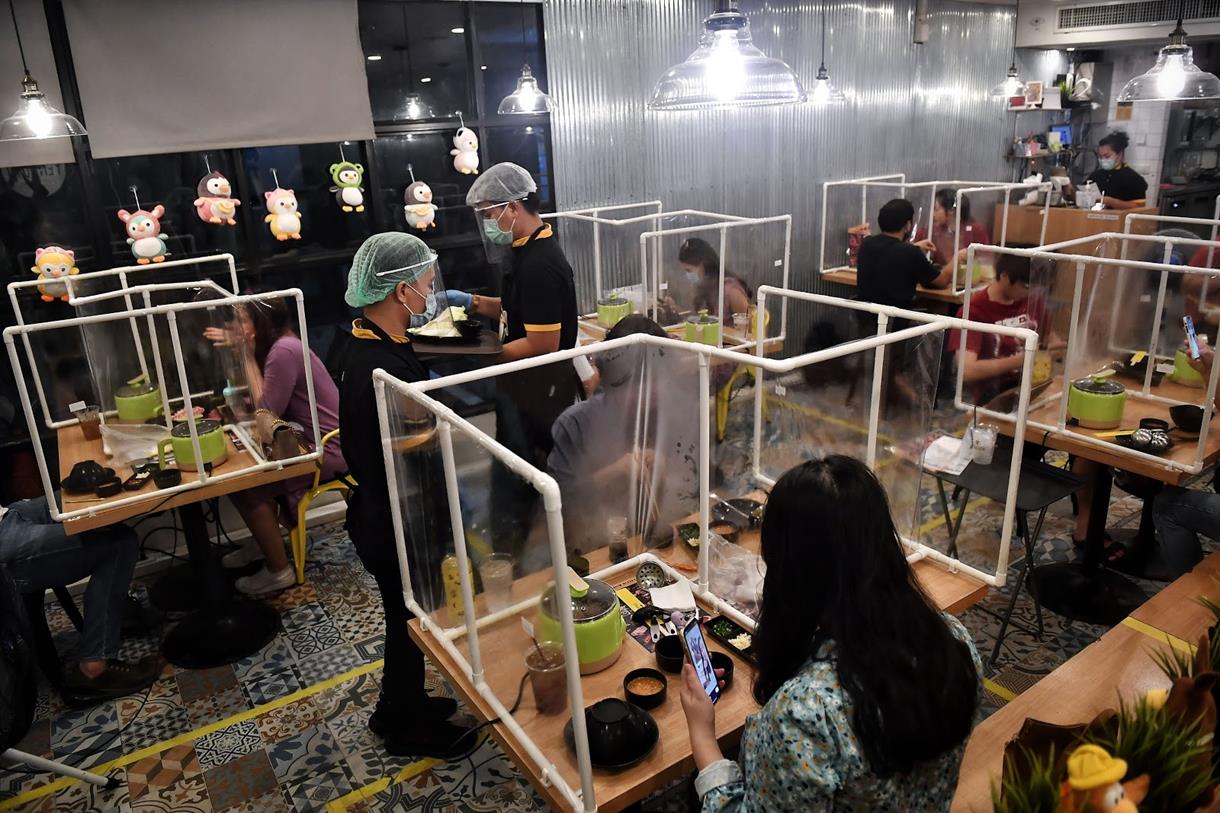
What does the UK death toll say about lockdown?
The news that Britain now has the highest Covid-19 death figure in Europe will come as a blow to the government. When lockdown began, ministers were saying that Britain was at least two weeks in front of Italy so lockdown would allow us to slam on the breaks (as per Imperial College London’s modelling) and keep deaths to under 20,000. The high ‘excess’ deaths have heightened nervousness in UK government, with ministers sensitive to the charge that lockdown started too late. It raises the prospect of an even-worse death toll once lockdown is lifted. The Imperial College London modelling assumes an instantaneous and profound relationship between government actions and the transmission of the virus.
A rival analysis is offered today. In an articlein the Lancet, former Swedish state epidemiologist and WHO adviser Johan Giesecke said the UK experience has proven that lockdown is not very effective in reducing deaths. ‘It has become clear that a hard lockdown does not protect old and frail people living in care homes – a population the lockdown was designed to protect. Neither does it decrease mortality from Covid-19, which is evident when comparing the UK’s experience with that of other European countries,’ he writes. Everyone will be exposed to the virus, and most people will become infected. ‘Covid-19 is spreading like wildfire in all countries, but we do not see it – it almost always spreads from younger people with no or weak symptoms to other people who will also have mild symptoms. This is the real pandemic, but it goes on beneath the surface, and is probably at its peak now in many European countries. There is very little we can do to prevent this spread: a lockdown might delay severe cases for a while, but once restrictions are eased, cases will reappear… lockdown only pushes the severe cases into the future – it will not prevent them.’
What does the prime minister think is so special about 30 April that meant testing that day was so high?
– Keir Starmer on the latest testing data showing the 100,000 target was met only briefly: the latest figures is 84,806.
We are bringing our country back.
– Donald Trump announces that the U.S will disband its Covid-19 taskforce.
Global news
- Germany’s tourism commissioner has said foreign holidays can happen this summer if infection rates stay down. Italy’s Prime Minister is also hopeful of summer holidays while Greece wants to open to visitors in July.
- Russian aid workers sent to Italy to assist with Covid-19 will return to Russia to deal with the country’s own outbreak.
- Some students in Wuhan returned to school today for the first time since lockdown.
- Professional baseball was played in South Korea for the first time since lockdown. Baseball will also return to Taiwan this week.
- Almost 20% of Wendy’s restaurants in America are not serving meat-based items, due to a shortage in the country.
Datawatch
What types of Sars-CoV-2 transmission make up the R – the number of people infected, on average, by each person with the virus? An Oxford paper says 47 per cent is from symptomatic sufferers to someone who will be able to identify who they got the virus from, 38 per cent is from presymptomatic individuals, 10 per cent is from asymptomatic individuals and 6 per cent is from contamination in the environment, where an infectee would not be able to identify by whom they were infected.
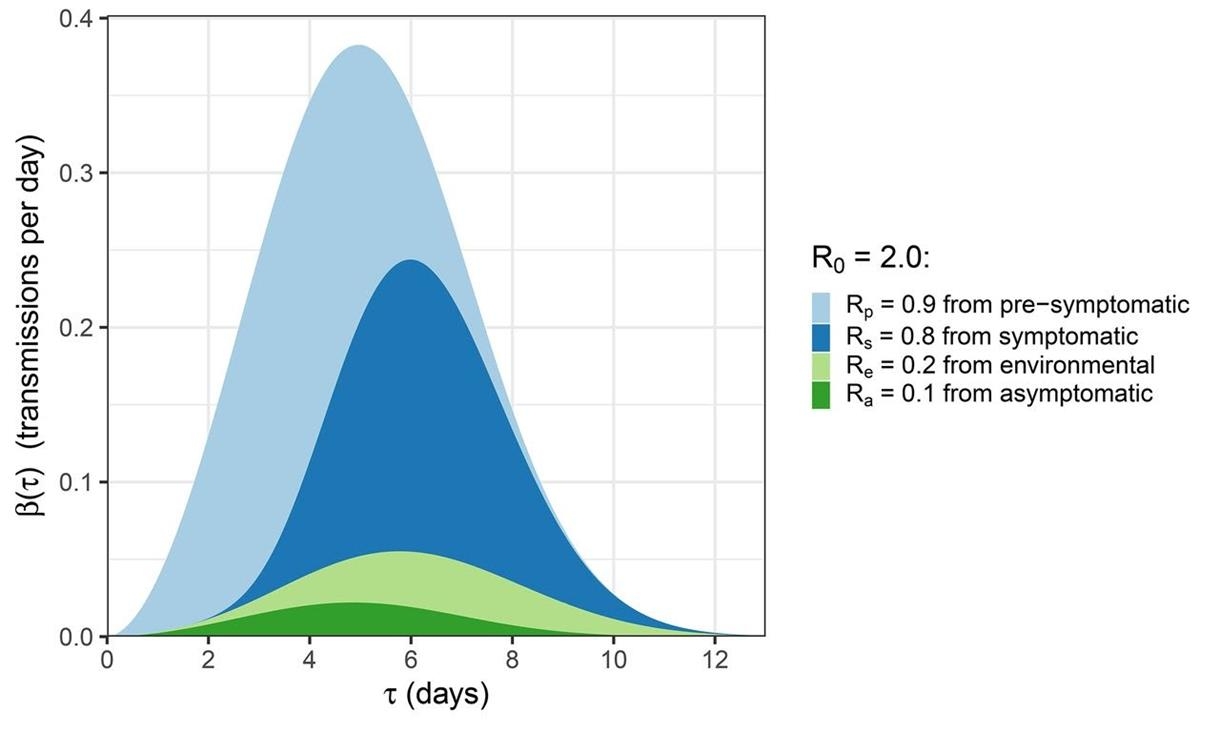
Podcast: Is a second wave unavoidable?
On this week’s episode of Coronomics: stories from countries turned upside down, Kate Andrews speaks to our panel – based in New York City, Rome and Hong Kong – about confusions around Italy’s lockdown easing, Hong Kong’s large-scale repatriation of residents from South Asia, the potential watershed moment of American news outlets accepting federal funds, and whether China is looking down the barrel of a second wave.
Research
As lockdown measures across the world aim to slow the spread of Covid-19, what impact have they had on other infectious diseases? A study out today suggests that a three-month lockdown and ten-month recovery could mean up to 1.4 million more deaths from tuberculosis, because of restrictions placed on those who treat and diagnose. The report from the Stop TB Partnership says the scaleback of TB services results in ‘missed opportunities for diagnosis and treatment’ leading to a ‘rapidly growing pool of undetected and unreported TB’. These untreated cases spread the disease and create significantly more cases than projected in years to come: next year alone, the study suggests we could return to levels seen in 2013-2016, ‘implying a setback of at least five to eight years in the fight against TB’ as a result of the stringent measures taken to tackle Covid-19.
Coronomics: Going down…
- Germany’s highest court has ruled that European Central Bank’s bond-buying policy is not constitutional – a huge blow to the ECB’s QE programme.
- US airlines are losing $10 billion a month and averaging less than two dozen domestic passengers per flight.
- The EU’s economy will shrink by 7.4% this year and grow 6.8% next year, while the UK economy will shrink by 8.3% before growing by 6.0%, the European Commission forecasts.
- Disney’s Q1 profits fell by $1.4 billion due to cancelled film releases and advertising cut. Ad-free Netflix, by contrast, is surging.
- ITV has furloughed 800 staff as advertising fell 42% in March.
- Virgin Atlantic has announced plans to cut 3,000 jobs and cease flights from Gatwick Airport.
And going up…
- Halfords is reporting rising profits due to a surge in demand for cycles
- Airbnb has seen the number of Europeans booking holidays rebound, suggesting growing the confidence that the lockdown could be lifted.
- The 2020 Key Worker Nation Report reveals 164% more searches for top ten key worker careers.
- Gaming surge: Activision Blizzard, the company behind the Call of Duty video game series, posted Q1 revenue of $1.8 billion, 35% higher than forecast.
More from The Spectator
Sweden tames its ‘R number’ without lockdown – Fraser Nelson
Do antibodies deliver immunity to coronavirus? – Robert Peston
Neil Ferguson steps back from Sage after breaking lockdown rules – Steerpike
Why the NHS contact tracing app could be dead on arrival – James O’Malley
A German court has plunged the eurozone into fresh crisis – Matthew Lynn

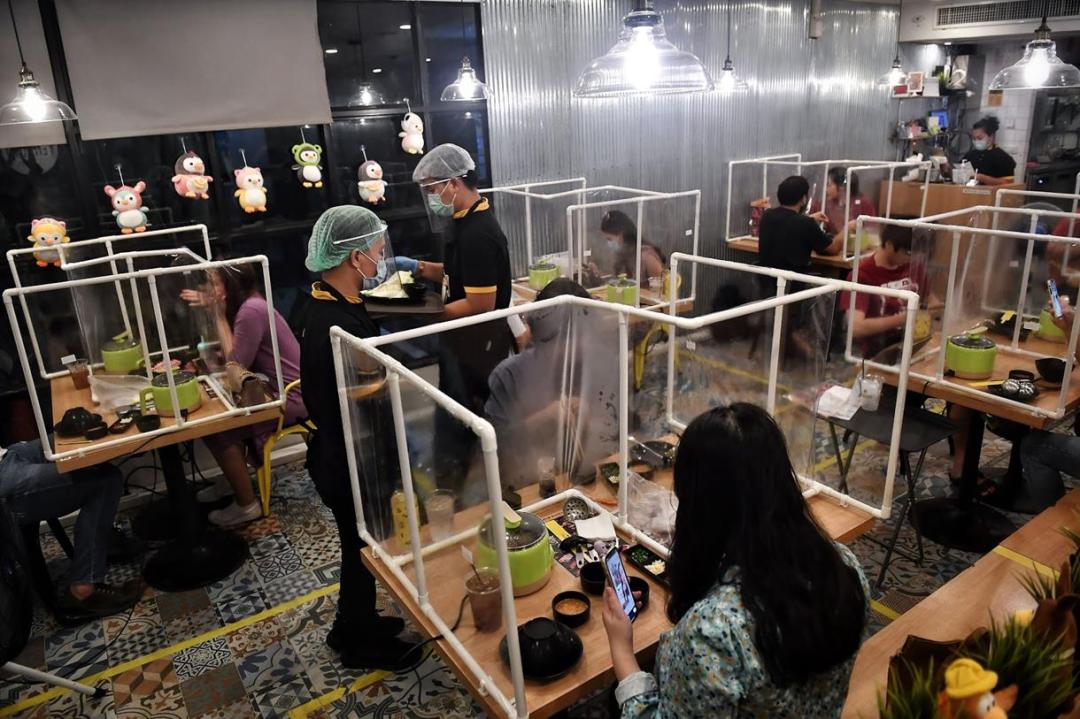
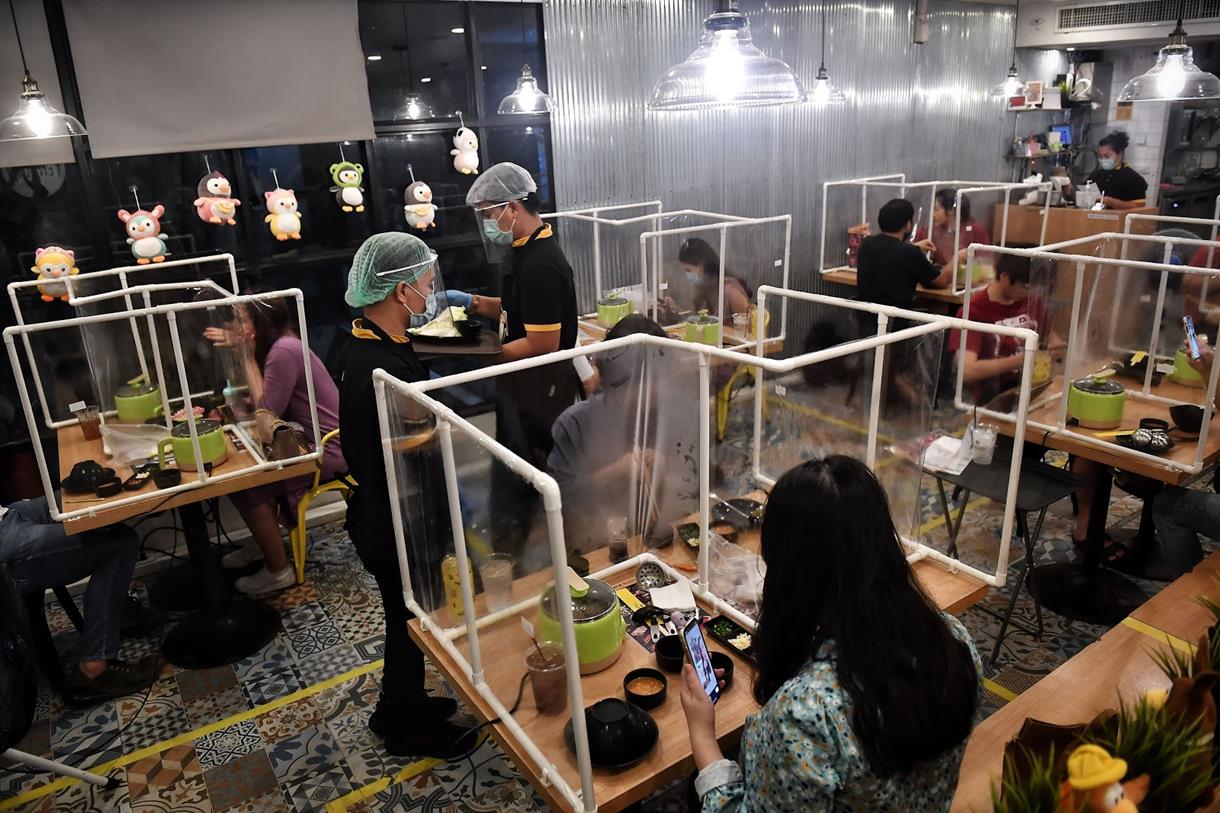




Comments